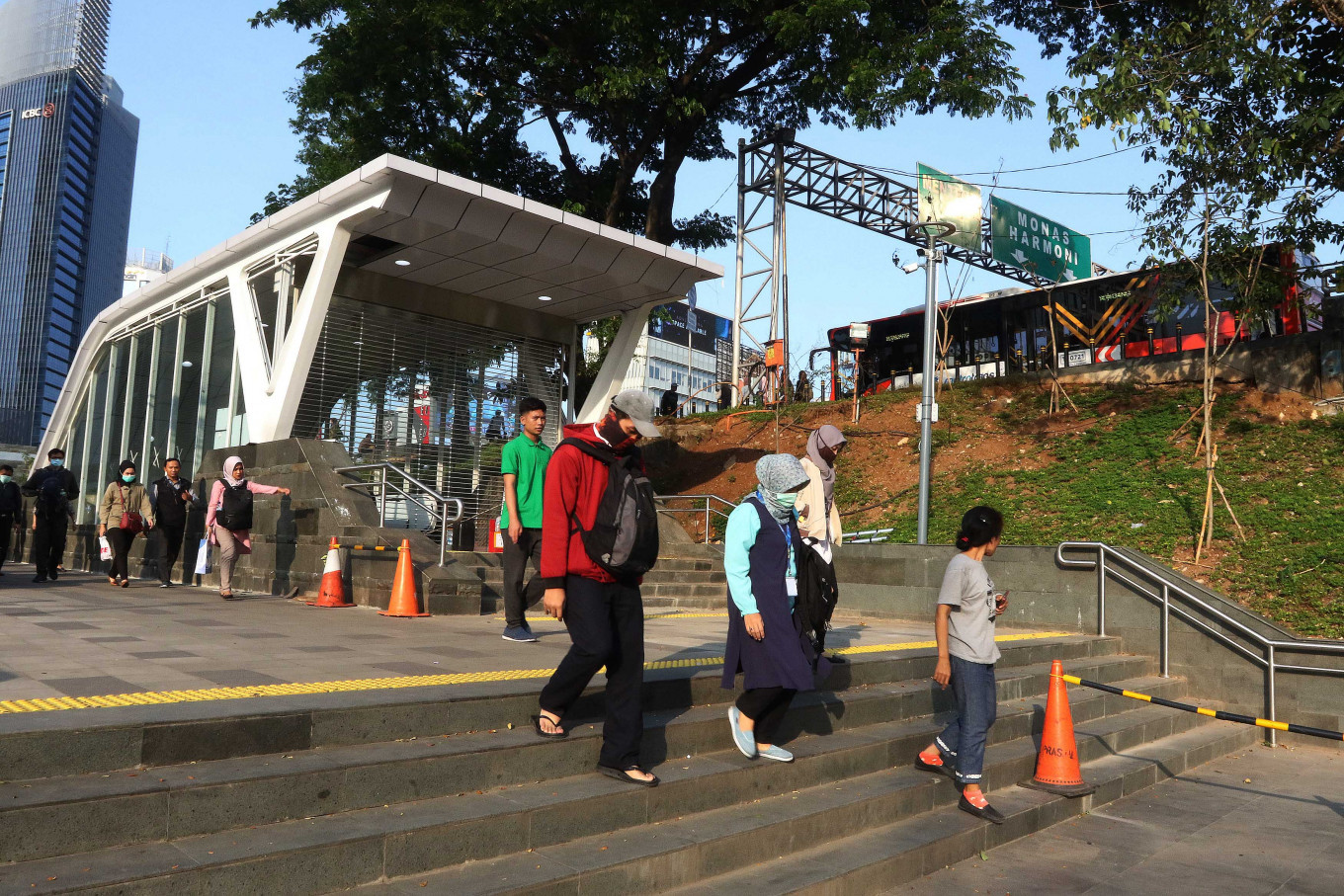Popular Reads
Top Results
Can't find what you're looking for?
View all search resultsPopular Reads
Top Results
Can't find what you're looking for?
View all search results115 million Indonesians not yet economically secure: World Bank
Members of the “aspiring middle class” are considered those who are not poor but have yet to achieve economic security, spending between Rp 532,000 (US$39.1) and Rp 1.2 million per person per month.
Change text size
Gift Premium Articles
to Anyone
W
hile free from poverty, approximately 115 million Indonesians, or 45 percent of the country’s population, have yet to achieve economic security and the lifestyle of the middle class, the World Bank’s latest report shows.
The Aspiring Indonesia – Expanding the Middle Class report published on Thursday highlights the need to adopt the right policies so that the so-called aspiring middle class can attain the economic security of the middle class.
Members of the “aspiring middle class” are considered those who are not poor but have yet to achieve economic security, spending between Rp 532,000 (US$39.1) and Rp 1.2 million per person per month.
Meanwhile, the middle class consists of economically secure Indonesians with little chance of falling into poverty or vulnerability, spending between Rp 1.2 million and Rp 6 million per person per month.
“Having the right policies can unlock Indonesia’s development potential and propel the country to high-income status,” said World Bank acting country director for Indonesia Rolande Pryce in Jakarta at the launch event for the report.
Strengthening tax policies and administration, as well as broadening the tax base, will be required to finance investments for development, he added.
President Joko “Jokowi” Widodo conveyed in his inaugural speech in October 2019 the nation’s vision to be a developed country with a gross domestic product (GDP) among the top five in the world and a near-zero percent poverty rate.
World Bank regional director for equitable growth, finance and institutions Hassan Zaman said that to grow the middle class, Indonesia needed to create more jobs with better pay backed by a robust system to provide quality education and universal health coverage.
“Growing the middle class requires reforms to improve the business environment to create good jobs, investment in the necessary skills and social protection systems that cushion against shocks,” Zaman said.
The report mentioned that Indonesia had made remarkable progress in reducing poverty over the past 15 years, reaching below 10 percent today. During this period, the report stated, the country witnessed its middle class grow from 7 percent to 20 percent of the population.
The report highlighted that Indonesia’s GDP was US$657 per person in 1967, making it one of the poorest countries in the world. Over the next 50 years, it stated, growth averaged 5.6 percent annually and the per capita GDP was now six times higher at nearly $4,000.










